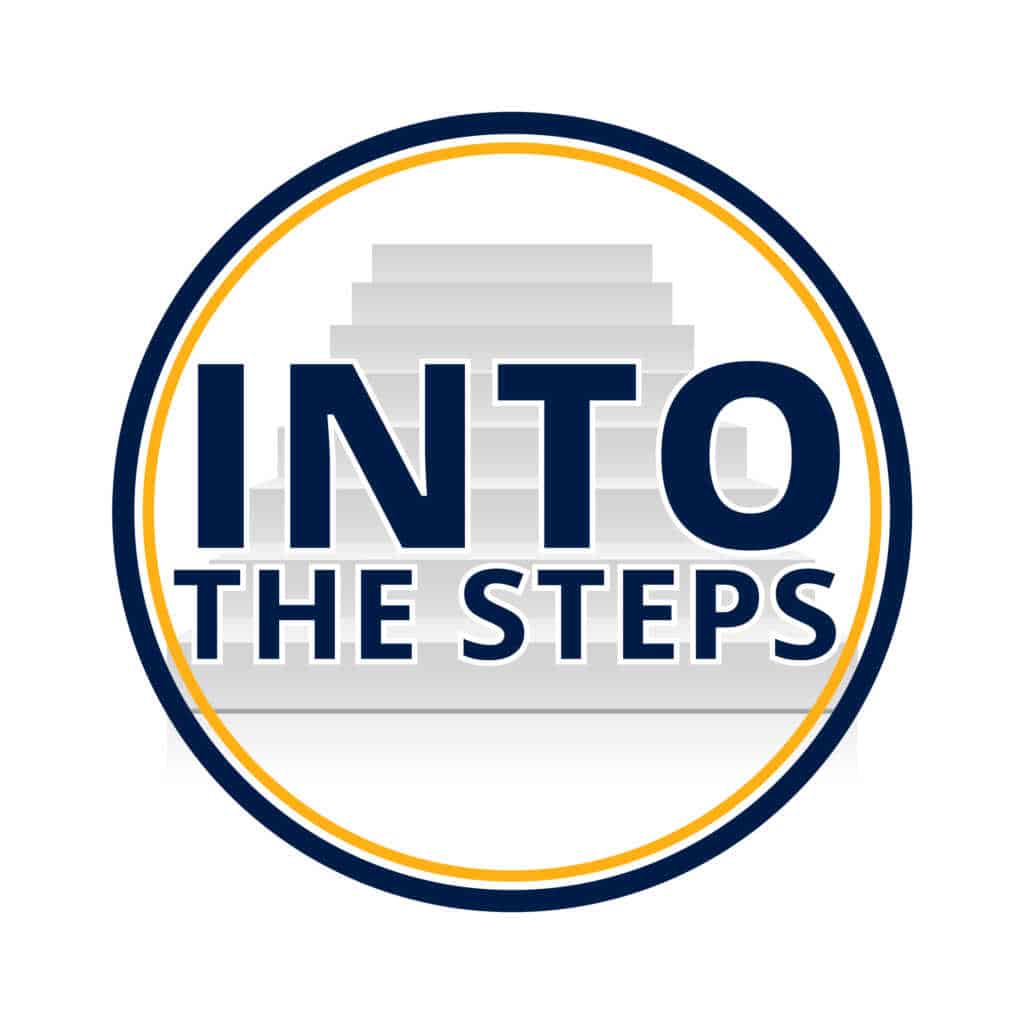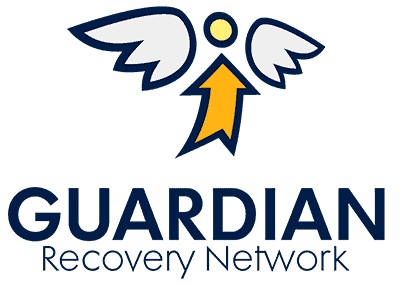The First Step
First Step Summarized
The First Step is to admit to ourselves on a deep, heartfelt level, that left to our own devices, we have no power to overcome our addictions. If we had the power to solve our problem, we would have already. We must feel our own powerlessness over our addiction, which has been ruling our lives. It is only by admitting complete defeat that we are then able to access the help and motivation we need to change.

Into the Steps
Into the Steps is a series of articles that dives deep into each of the 12 Steps. While Guardian Recovery is not affiliated with Alcoholics Anonymous, we have been utilizing the 12-Step process in a treatment setting for more than 15 years. We have found that the steps, especially in combination with our clinical therapy offerings, are a powerful tool for helping individuals transform their lives and find lasting freedom from addiction.
It is highly encouraged that you do not attempt to take these steps alone, but rather with a trusted guide called a sponsor who can walk you through them and be your support. Or, you can come work them at a Guardian Recovery treatment program. Unlike many other treatment centers, we don’t just teach individuals about the steps, we actively work them. Find a facility here.
First Step Explained
What does this mean?
Part One – Our mind is a trickster. Left untreated, our mind will always, time and time and time again, tell us that it is ok to take the first drink or drug. Our mind tricks us, convincing us that “this time it will be different.” Or “Maybe it wasn’t so bad.” “Maybe I can control it.” “Maybe I could just drink on weekends.” “Maybe if I just stick with wine instead of liquor.” “I’ll only use this one time” Maybe if I just snort it and not shoot it” etc. etc. Our addicted mind is consistently and persistently trying to convince us that we are not addicts or alcoholics — that we can take that first drink or drug. The Big Book says that “The idea that somehow, someday he will control and enjoy his drinking is the great obsession of every abnormal drinker. The persistence of this illusion is astonishing. Many pursue it into the gates of insanity or death.”Part Two – Our body reacts differently. What the doctor in “The Doctor’s Opinion” determined was that the alcoholic essentially has an allergy to alcohol. That the body of an alcoholic reacts differently than in non-alcoholics. When an alcoholic takes a drink, it triggers what the doctor calls “the phenomenon of craving.” The first drink triggers something in us that compels us to keep drinking. Even if we have been sober for a period of time, when we take the first drink it awakens a sleeping beast. It triggers this insatiable craving — this instinct and drive — to keep drinking. This is why in Narcotics Anonymous, there is a phrase “One is two many and a thousand is never enough.” The first drug or drink triggers this craving compelling us to satiate our craving which will never be fully satisfied. That craving cries out, “more, more, more.” We cannot control it.
Admitting Powerlessness
If we have a mind that always tells us it is ok to take a drink or a drug, and then a body that guarantees we will keep drinking or using once we start, then we are pretty much screwed right? We are powerless.
Once we understand this — the nature of our illness and the reason why we are powerless — we see that we desperately need a solution. We need a power that can alleviate our mental obsession so that we don’t convince ourselves to take that first drink or drug. We know that the first drink or drug sets off the allergy in our body. If we can find a power to fix our mind so that we can avoid that first drink or drug, then we won’t set off the phenomenon of craving, and the sleeping beast will remain at rest.
To summarize, in the first step you will understand what addiction is, why you are powerless over it, and you will concede to your innermost self that you are indeed powerless over your addiction.
To read more in depth about the first step, we recommend reading the First Step in the Twelve and Twelve; the Doctor’s Opinion in the Big Book of Alcoholics Anonymous; and the first three chapters of the Big Book.
A Note On Science
Since 1938, when the Doctor’s Opinion was written, there have been huge advances in medical science. Modern science and neurological scans have actually shown the doctor’s theory to be correct. Dr. Alan I. Leshner, a neurologist and leading researcher in the field of addiction, has shown through brain scans that the addicted mind is different than that of a non-addict.
His research explains how the brain of an addict begins to progressively prioritize drinking and drugs over all other survival insticts including sex, shelter, food and water. This explains why many addicts and alcoholics end up prioritizing their alcohol and/or drugs over their homes, families and health. Their brain begins to command it. Their brain has been hijacked.
Understanding this can take away some of the pain for family members of addicts and alcoholics who often take their loved one’s addiction personally (as if the addict or alcoholic doesn’t love them enough to stop). It offers clarity on why the addict and alcoholic behaves in such irrational, insane, selfish and hurtful ways. They are under the control of a power greater than they are.
Guardian Recovery & the 12 Steps
At Guardian Recovery, we utilize the 12 Steps in combination with evidence-based therapeutic models facilitated by licensed therapists. This powerful combination has been shown to be extremely effective in treating addiction.
We have several treatment centers that actively take individuals through these steps. To find a center near you, click here.
Unlike many other treatment centers, Guardian Recovery does not just teach individuals about the steps, we actually work them. While in treatment, our clients are partnered with both an experienced 12-Step guide and a primary therapist. By working the steps in a treatment setting, our clients are surrounded by professional support while going through the process.
If you or someone you love is ready to get sober, contact us any time, 24/7. Our Treatment Advisors are compassionate individuals here to help you navigate the beginning of your recovery journey.
12-Step Learning Center
Integrated, Holistic Care
At Guardian Recovery we believe in taking an integrated approach to addiction treatment, meaning that we simultaneously focus on physical, mental, emotional and spiritual healing. We take a “whole person” approach to recovery, which allows for the development of vital relapse prevention and life skills. Clients learn how to work through uncomfortable feelings and emotions and engage in self-care as they navigate early recovery and transition back into independent living. To learn more about our integrated approach to recovery, or to learn more about the importance of mindfulness and meditation, contact us today.
Get Started Now
Give us a call 24/7


